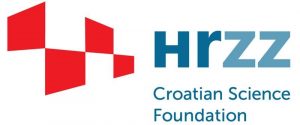Formal systems and modeling (FORMALS-2) is a research project funded by Croatian Science Foundation (HRZZ), grant IP-2024-05-3882, for a period of 3 years, starting from December 9th, 2024.
The project coordinates the work of a research group in mathematical logic and applications, formed through the previous project Formal reasoning and semantics (FORMALS, Croatian Science Foundation grant UIP-2017-05-9219), in which collaboration was established between researchers in pure and applied logic. Focus of the proposal are applications of logic in computer science and vice versa, applications of computational tools in logical and mathematical research, and applications of logic to problems of other fields (linguistics, cognitive and information sciences, social choice theory). Modal logic systems are of particular interest, since they are applied in surprisingly different areas in similar way. Modeling and formalization of problems brings conceptual clarity, confidence in proving new results and enlightens issues which often remain hidden in informal reasoning. Research group members have background in mathematics, information sciences and linguistics.
Project topics include:
1) modal logic
2) logical and computational aspects of social choice theory
3) applications to cyber-physical systems and cognitive-linguistic analysis
4) fundamental and interdisciplinary topics in logic and mathematics
Objectives include:
1) completeness, decidability and complexity of modal logic systems, relations between different semantics of interpretability logic
2) axiomatization and formalization of the notion of compromise
3) developing methods and tools for identification of properties of language structures
4) generalization of modal semantics by means of categorial logic and topos theory
The methodology is mathematical modeling and logical formalization of given problems, deductive research of the obtained formalization and application of its results to the starting problem. When appropriate, algorithms to solve given problems will be developed and implemented. Measurable results of the project will be research papers published in relevant international journals and presented at competitive international conferences. These results are listed below. The results of the previous project are listed here.
Papers
T. Perkov: Transformation of any Verbrugge model to a bisimilar Veltman model, Mathematical Structures in Computer Science 35 (2025) e11, 14 pp.
T. Perkov: Intuitive equilibriums in games like traveler’s dilemma, Logica Universalis 19 (2025) 509-516.
T. Ban Kirigin, S. Bujačić Babić, B. Perak: Graph-based lexical sentiment propagation algorithm, Mathematics 13:7 (2025) 1141, 27 pp.
P. Vuković, W. Yang: A unified approach to new discrete local fractional Hilbert-type inequalities, Filomat 39:9 (2025) 3191-3200.
S. Marić: Bisimulation quotient in inquisitive modal logic, Logics 3:3 (2025) 11, 12 pp.
X. Zuo, P. Vuković, W. Yang: Certain novel local fractional half-discrete Hilbert-type inequalities with nonhomogeneous kernels, AIMS Mathematics 10:8 (2025) 17642-17656.
P. Vuković: Local fractional Hilbert-type inequalities with a non-homogeneous kernel, Armenian Journal of Mathematics 17:7 (2025) 1-13.
B. Perak, D. Špica: Automating lexical graph construction with large language models: a scalable approach to Japanese multi‑relation lexical networks, Knowledge 5:4 (2025) 24, 27 pp.
S. Marić, T. Perkov: Selection method for inquisitive modal logic, Reports on Mathematical Logic 60 (2025) 3-22.
a
Presentations
Z. Šikić: On Tarski’s two concepts of logical consequence, Zagreb Logic Conference (ZLC 2025), Zagreb, 14-17 February 2025.
T. Adlešić: New Foundations and the foundations of mathematics, Zagreb Logic Conference (ZLC 2025), Zagreb, 14-17 February 2025.
T. Šestak, T. Perkov: General frame semantics for interpretability logics, Zagreb Logic Conference (ZLC 2025), Zagreb, 14-17 February 2025.
P. Vuković: Local fractional Hilbert-type inequalities, 3rd International Conference: Constructive Mathematical Analysis (ICCMA 2025), Konya, 2-5 July 2025.
T. Adlešić, V. Čačić: Boolean-valued models in New Foundations with Urelements, Logic Colloquium, Vienna, 7-11 July 2025.
T. Šestak: Algebraic semantics for interpretability logics, European Summer School in Logic, Language and Information (ESSLLI 2025) Student Session, Bochum, 28 July – 8 August 2025.
M. Orlić Bachler, Z. Kaliman: On Fuss’ relations for bicentric polygons with an odd number of vertices, 25th Scientific-Professional Colloquium on Geometry and Graphics, Čakovec, 7-11 September 2025.
T. Adlešić: The axioms of Frege and Zermelo, 4th International Gottlob Frege Conference, Wismar, 15-20 September 2025.
S. Bujačić Babić, T. Ban Kirigin: Interpretable vs. learnable centrality: combining SLI and neural networks, Logic and Applications (LAP 2025), Dubrovnik, 24-28 September 2025.
J. Comer, T. Ban Kirigin, M. Kanovich, A. Scedrov, C. Talcott: Computational complexity of some time-bounded verification problems, Logic and Applications (LAP 2025), Dubrovnik, 24-28 September 2025.
S. Marić: Finite model property and decidability of inquisitive neighborhood logic, Logic and Applications (LAP 2025), Dubrovnik, 24-28 September 2025.
T. Adlešić: New Foundations and strongly Cantorian sets, Logic and Applications (LAP 2025), Dubrovnik, 24-28 September 2025.
T. Šestak: Algebraic semantics for interpretability logics, Logic and Applications (LAP 2025), Dubrovnik, 24-28 September 2025.
A. Hatzivelkos: Reducing the dimensionality of social choice domains through symmetry invariance, 3rd International Conference on Electronics, Energy, Environment and Computer Science (ICELECS 2025), Santorini, 31 October – 2 November 2025.
a
Prizes
T. Šestak was awarded the prize for the best oral presentation for the talk Algebraic semantics for interpretability logics at European Summer School in Logic, Language and Information (ESSLLI 2025) Student Session in Bochum, 28 July – 8 August 2025.
T. Perkov was awarded the Georgius Benignus Logic Prize for 2025 by Croatian Logic Association for the paper Intuitive equilibriums in games like traveler’s dilemma, to represent Croatia at the World logic Prizes Contest during the 8th World Congress and School on Universal Logic (UNILOG 2025) in Cusco, 4-14 December 2025. The paper is published in Logica Universalis.


